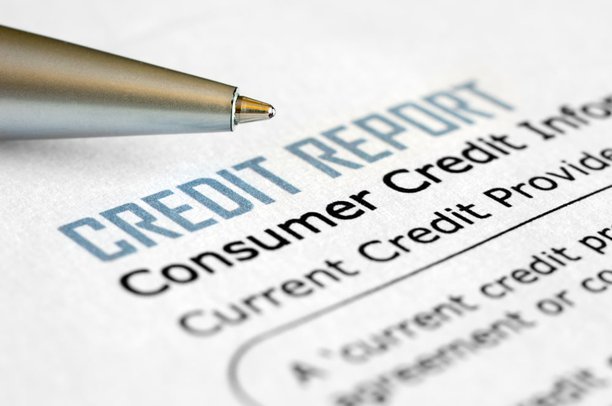How Long Does Bad Credit Stay On Your Credit Report in Canada?

Canadian Credit Reports: Everything You Need to Know
A credit report is a document that summarizes your credit history with borrowed funds (such as loans), bill payments, and other forms of credit. Your credit report begins from the first time you borrow money or apply for facilities that grant you access to a line of credit, such as a credit card. Lenders then send this information and subsequent data on your payments to institutions known as credit agencies, which use that information to create and update your credit report, and assign you a credit score. In Canada, Equifax and TransUnion are the two major credit agencies.
A credit score is a three-digit number between 300 and 900. If you use your credit responsibly and make payments on time, your score will be higher, while any issues with credit management will naturally cause the score to decline. A higher credit score has several key advantages, including:
-
Access to favourable (i.e., cheaper) credit in the future
-
More leverage when negotiating with lenders for the most attractive terms
-
Higher credit limits
-
Better chances as a potential tenant when renting a home
How Long Does Bad Credit Stay On Your Credit Report?
From time to time, consumers can face credit challenges caused by loss of an income source, non-eligibility of government supports, or other such adverse circumstances. These factors may cause:
-
Missed payments
-
Accounts being sent to collection agencies
-
Bankruptcy
Lenders are obligated to report these events to credit agencies. Once your credit score is updated, it is used by other lenders to evaluate your risk level as a borrower, and determine whether or not you fit the borrower profile parameters that they are able to lend money to.
While both positive and negative information is required to be reported by law, the good news is that negative information is not held indefinitely against you on your credit report. The length of time that shows on the report varies based on the type of information, the province or territory you live in, and/or the credit bureau’s individual policies. However, most negative information stays on your report for 6 years in general.
Below are some examples of potential negative information, and the length of time that it stays on credit reports in Canada:
|
Information |
Description |
Length of time |
|
Consumer proposals |
Legal agreement that includes a trustee creating a proposal for creditors on your behalf, where they agree to write off some portion of your debt in return for a structured payment plan for a specified percentage |
Equifax: 3 years after all debts are paid back TransUnion: The sooner of: (i) 3 years after all debts are paid back, and (ii) 6 years after the proposal is signed |
|
Bankruptcy |
Legal process that includes debt elimination from creditors in exchange for control over personal assets (with some exceptions) |
All Canadian Credit Agencies: 6 years from the date you are discharged in most provinces TransUnion: 7 years from the date you are discharged if you are discharged in: New Brunswick, Newfoundland and Labrador, Ontario, PEI, and Quebec If you declare bankruptcy more than once, both bankruptcies will appear on the credit report for 14 years without exception. |
|
Judgments |
Lawsuit debts that you owe to an individual or an entity based on judgment provided by a court of law |
All Canadian Credit Agencies: 6 years in most cases TransUnion: 7 years in New Brunswick, Newfoundland and Labrador, Ontario and Quebec, and 10 years in PEI |
|
Late Payments |
Payments that are delayed past the due date |
All Canadian Credit Agencies: 6 years |
|
Garnishments |
Legal process that allows third parties to deduct payments directly from your bank account usually for tax dues, missed alimony, or missed student loan payments |
All Canadian Credit Agencies: 6 years In PEI, the sooner of: (i) 7 years from the date that the payment is made, and (ii) 10 years from the date that the garnishment is filed |
How to Improve Your Credit Score
There are several measures you can take to elevate your credit score in order to reap the benefits of a higher score. In general, any score above 750 is considered excellent, and will likely get you more favourable terms from lenders and access to the majority of credit sources. Some ways of achieving this threshold include:
-
Reviewing your reports: Make sure you go over your credit reports with a fine tooth comb to see if all the information is accurate and factual. Often, there may be a case of an administrative error on the part of the credit agency where you are accidentally penalized for someone else’s missteps, or information is provided or entered incorrectly. If you find such a case, contact the agency immediately to have it corrected.
-
Be timely with your payments: Make sure to always complete payments on time. Get a calendar and mark it with the dates that your payments are due if needed to ensure you set money aside well ahead of time.
-
Lower your credit utilization: Depending on your credit limits, try to remain within 35% or less on average for your monthly credit utilization. A borrower that uses a greater portion of their available credit is generally viewed to be a greater credit risk borrower.
-
Limit the number of hard checks: When you apply for credit, lenders will ask a credit bureau for your most updated report. This is called an ‘inquiry’ or ‘credit check’. These credit checks can either be a ‘hard inquiry’ or a ‘soft inquiry’. Hard inquiries affect your credit score, but soft inquiries do not.
Bad credit can often make it difficult to access financing, as banks and other traditional lenders typically have strict policies on the type of borrower they can lend to. At Magical Credit, we as a personal loan lender pride ourselves on being flexible and responsive to the unique needs of borrowers.
We look past non-traditional income sources and poor credit to provide you with credit solutions that enable you to make the best decisions for yourself and your family. Contact our team today to get started!




